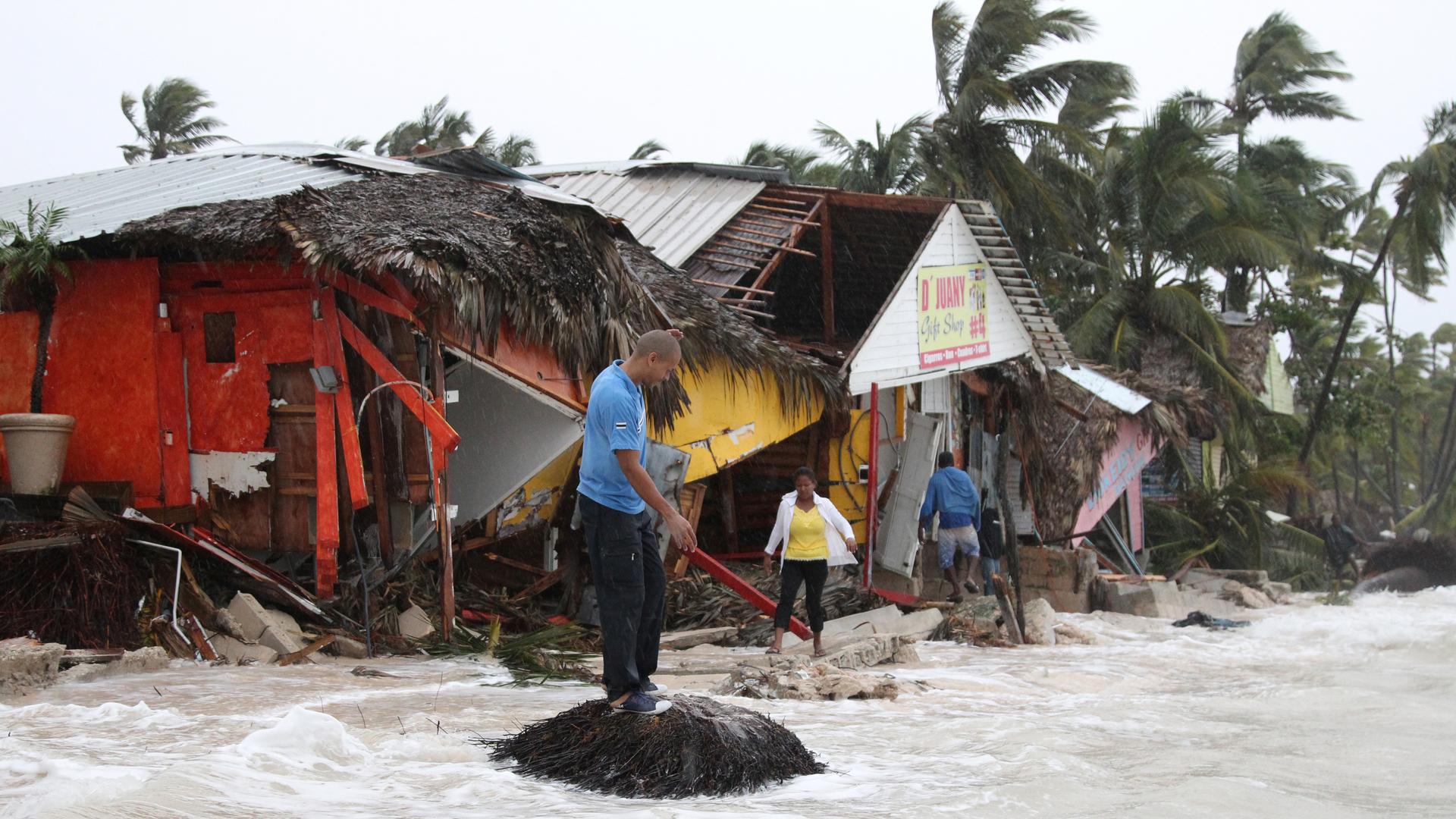Immigration attorneys warn against using the term ‘climate refugee’
People walk among debris on the seashore in the aftermath of Hurricane Maria in Punta Cana, Dominican Republic, Sept. 21, 2017.
With so much destruction from this season's hurricanes in the Caribbean, there are going to be a lot of people on the move — looking to start their lives in new places. We’ve already seen mass movements of people from areas plagued by drought, floods or storms. Many casually refer to these people as “climate refugees.”
But the problem with the term climate refugee starts with the word “refugee.”
“The term refugee has some very serious legal consequences, and it’s a very rigid legal definition. It’s usually an individual determination based on a person’s fear of persecution,” explains Mara Kimmel, an immigration attorney in Anchorage, Alaska.
The legal definition of refugee goes back to the years following World War II when the United Nations defined a refugee as an individual outside of his or her own country, someone who can’t return because of a well-founded fear of persecution due to race, religion, nationality, political opinion or membership in a social group.
“I don’t think that’s necessarily translatable to a situation where whole communities are being forced to flee and to relocate because of climate change,” says Kimmel.
“The whole idea of refugee is that you can’t rely on your national government to provide that protection,” says attorney Robin Bronen, the executive director of the Alaska Institute for Justice in Anchorage. “And in the context of climate change, we should expect that our national governments are going to protect us.”
Many countries are already trying to do that, from Pacific island states to the Netherlands. They’re trying to keep people from having to relocate. But, an untold number of people are already on the move due to climate change.
The United Nations estimates that 21.5 million people have been displaced annually since 2008 due to “weather-related, sudden onset hazards,” and that there is “high agreement” among scientists that climate change, along with other drivers, is expected to increase those numbers.
It’s not possible to blame any individual weather event on climate change. But scientists have been warning us that warming ocean temperatures are creating conditions for more powerful storms like we’ve seen batter the Caribbean, Houston and Florida.
And then there’s the slow, steady process of coastal erosion and sea-level rise. In Alaska, Bronen is working with residents of several small indigenous communities that are threatened by flooding and erosion. Three villages have decided to relocate as entire communities.
“In each of those three communities, they uniformly said, ‘No way are we relocating to a place outside of our region. We are going to try [to] figure out how we can relocate as an entire community to a place that is close to where we’re currently living so we can maintain our lifestyle and traditional cultural practices.’”
Many people and families are also being forced to relocate on their own, oftentimes in a hurry, unplanned, and not as part of a bigger community.
Bronen says international human rights principles need to be created to protect communities and individuals that may be forced to migrate due to climate change.
So, if we shouldn’t call these displaced people climate refugees, what should we call them? How should we refer to the phenomenon of having to move because of climate change?
Mara Kimmel says, “I think that the terminology that is increasingly gaining a foothold is 'climigration.'"
Climate plus migration: climigration. It’s a new word for a new problem.
Whatever term we end up using, it’s a conversation that needs to be had. While climate scientists can’t pinpoint an exact number, they’ve predicted that climate change could displace tens of millions of people by midcentury.
Our coverage reaches millions each week, but only a small fraction of listeners contribute to sustain our program. We still need 224 more people to donate $100 or $10/monthly to unlock our $67,000 match. Will you help us get there today?
